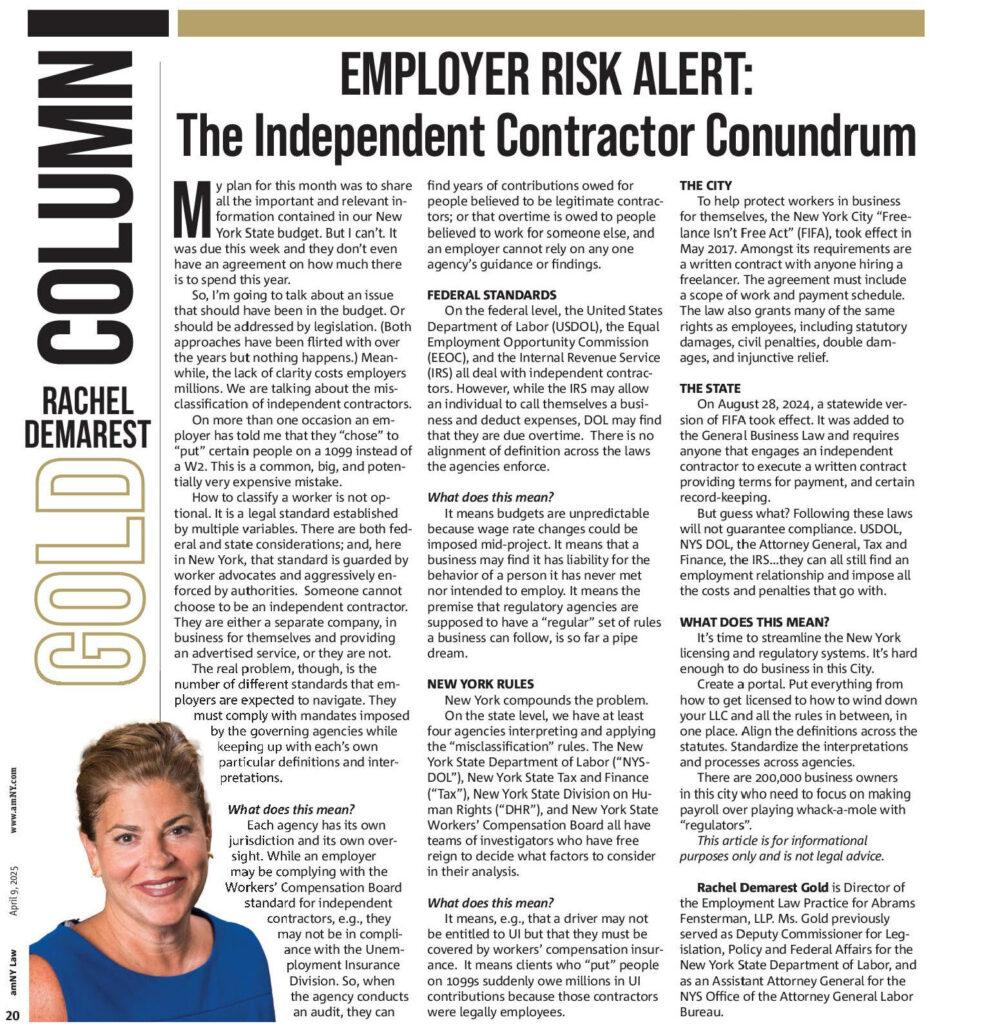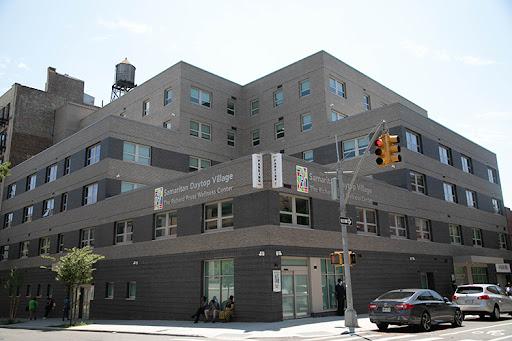One of the essential elements in any malpractice case is that the physician accused of malpractice owed a duty of care to the injured plaintiff. It is only if such a duty of care exists that the physician’s alleged malpractice may form the basis for liability to the injured party. Typically, the party claiming injury is the physician’s own patient and, in such cases, the existence of the physician-patient relationship is enough to support such a duty.
However, recent cases have seen third parties, rather than the physician’s own patient, claiming liability against a physician for his or her alleged negligent care and treatment, causing injury to the third party. Will such a claim be successful?
Here are three cases which arrive at different results.
Case 1
On June 19, 2011, David Laffer, who was intractably addicted to pain medications, walked into a Suffolk County, New York pharmacy intending to rob the pharmacy of its prescription narcotics. In the course of the robbery, Laffer shot to death four innocent people who were either employees of the pharmacy or customers. Laffer was arrested, charged and ultimately convicted of the crimes, and he is serving four consecutive life sentences.
One of the victims was Jamie Tacetta. In Malone v. County of Suffolk, et al., Tacetta’s estate commenced a wrongful death action against a number of defendants, including Stan Xuhui Li, MD It is alleged that Li prescribed approximately 2,500 narcotics pills to his patient, Laffer, between 2009 and 2010; that Li “knew or should have known” that Laffer was an addict; that Li “knew or should have known” that prescribing such pills would increase Laffer’s dependency on the narcotics and result in the robbery of pharmacies to acquire said narcotics, endangering the occupants therein; and that Li “recklessly disregarded his obligation and duty” not to over-prescribe such narcotics to Laffer.
The lawsuit further alleges that Li “created a public nuisance” by allowing Laffer to have access to these narcotics. All of the foregoing breaches are claimed have contributed to and caused the wrongful death of Tacetta. It is to be noted that plaintiff did not assert a medical malpractice claim against Li, but rather alleged negligence and reckless conduct in his over-prescribing of narcotics to Laffer.
Li’s attorneys moved to dismiss the case, arguing that a medical provider does not have a duty to the general public to control the conduct of his patient, nor does he have an affirmative duty to protect others from the conduct of his patient. The trial court denied Li’s motion seeking dismissal of the action, distinguishing those cases where a provider is alleged to have merely failed to perceive a risk of danger so as to prevent the patient from harming others, and this case, where it is alleged that Li affirmatively created the danger by recklessly “feeding” Laffer’s addiction. The court stated as follows:
“[A] medical provider may owe a duty to protect the public from the actions of a drug addict and he may be found to have breached that duty if he creates or maintains the addiction through his own egregious conduct.” (Emphasis added)
In so holding, the court did not rule that Li is liable; it simply denied his attempt to have the action dismissed prior to depositions and other discovery being completed. But the decision stands as an ominous warning for physicians who prescribe narcotics to their patients over a prolonged period of time. Should any such patient become addicted to those narcotics and should such addiction result in injury or death of a third party (whether negligently or intentionally), the physician may be held accountable.
Case 2
A different result was reached in Fox v. Marshall. In August 2006, during a trip from his residential psychiatric facility to visit his mother, Evan Marshall killed and dismembered Denise Fox, who lived two doors from his mother. Fox’s husband commenced a wrongful death medical malpractice action against the mental health facility and psychiatrist who treated Marshall, seeking to hold them liable for failing to correctly diagnose Marshall.
The facility and psychiatrist made motions to dismiss the action, which were denied by the trial court, holding that mental health providers may have a duty of care to the general public in some cases. However, on appeal, the appellate court disagreed and dismissed the malpractice claims, holding as follows:
“Regardless of any sense of outrage which is evoked by the heinous actions of Evan Marshall, society’s interest is not best served by concluding that a doctor who treats a patient, within the context of mental health, undertakes a duty to the public at large.”
In coming to this result, the appellate court acknowledged that there is no “bright line rule” on when health care providers treating a voluntary patient owe a duty of care to the general public. The issue must be determined on a case-by-case basis. The appellate court concluded that the extension of a physician’s duty of care beyond a narrow class of potential plaintiffs, such as the patient’s immediately family members, cannot be supported.
Case 3
In the third case, Davis v. South Nassau Communities Hospital, Lorraine Walsh had been discharged from the emergency department of defendant hospital after being treated with what plaintiffs characterized as potent narcotic medications, which included Toradol, Dilaudid and Ativan. While driving herself home, Walsh was involved in a crossover head-on motor vehicle collision with a school bus, in which the plaintiff school bus driver was severely injured.
The plaintiff alleged that no warnings had been given to Walsh, prior to her discharge, about operating a motor vehicle. Plaintiff also alleged that the defendant hospital and physicians committed malpractice in releasing Walsh from the emergency room in an impaired and diminished cognitive and physical state caused by defendants’ treatment, without allowing or permitting the effects of the medications to abate, without instructing Ms. Walsh on the dangers of operating an automobile, and/or without arranging a safe method of transportation for her.
The defendant hospital and physicians moved to dismiss the action on the grounds that, in the absence of a physician-patient relationship between plaintiff and defendants, a cause of action for medical malpractice cannot be sustained. The trial court agreed, holding as follows:
“Under the circumstances of this case, the absence of a doctor-patient relationship between plaintiff and defendants precludes a cause of action based on medical malpractice. The sine qua non of a medical malpractice claim is the existence of a doctor-patient relationship…”
While the court stated that, in limited circumstances, a doctor’s duty can encompass non-patients who have a special relationship with either the physician or the patient, no such special relationship existed between the plaintiff school bus driver and either Ms. Walsh or the defendant medical providers.
Conclusion
These three cases demonstrate that the courts will carefully examine the alleged negligent conduct by the medical provider, as well as the relationship between the patient, the injured plaintiff and the defendant medical provider, to determine if there is any “special relationship” among them which might give rise to a duty of care by the provider to the injured non-patient plaintiff.
Michael S. Kelton, Esq. is partner in the New York law firm of Abrams Fensterman Fensterman Eisman Formato Ferrara & Einiger, LLP, where he is the Director of the firm’s Medical Malpractice Defense Department. For more information about Mr. Kelton or the topic discussed in this article you may contact Mr. Kelton at mkelton@abramslaw.com.
Abrams Fensterman Fensterman Eisman Formato Ferrara & Einiger, LLP provides legal services for the health care industry throughout New York, New Jersey and Connecticut. To learn more about the firm and its practice areas please visit our site.
This was originally published on Physiciansmoneydigest.com. Distribution or re-transmission without written consent of the copyright owner is prohibited. Copyright Intellisphere, LLC.





